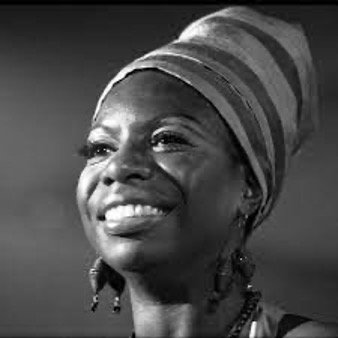Nina Simone
The High Priestess of Soul
Nina Simone, born Eunice Kathleen Waymon in Tryon, North Carolina, on February 21, 1933, was a multifaceted talent whose influence extended far beyond music. Raised in the segregated South, she displayed exceptional musical aptitude from an early age. Raised in a modest household, Simone's prodigious talent was evident from an early age. She honed her skills on the piano in the local church, where her mother served as a preacher. Simone's talent shone brightly, attracting attention and admiration from the community.
It was her classical training that set Simone apart in her adult years, performing in clubs, honing her unique blend of jazz, blues, and classical styles. Her music became a vehicle for activism, addressing civil rights issues with powerful songs like "To Be Young, Gifted and Black." Her voice, rich with emotion and depth, resonated with audiences worldwide. Her impact transcends music, inspiring generations to confront injustice and fight for equality. Nina Simone's legacy endures as a symbol of strength, creativity, and the transformative power of art in challenging societal norms.
Simone passed away on April 21, 2003, leaving behind a legacy that transcends genres and generations. Today, she is remembered as more than a musician; she is a symbol of strength, courage, and the enduring power of art to ignite change. Nina Simone's voice continues to echo through the annals of music history, reminding us of the transformative potential of music in shaping our world.



